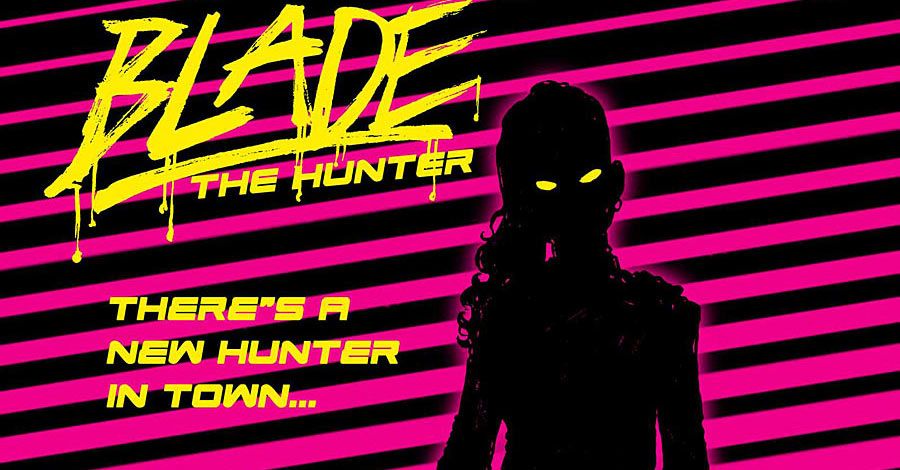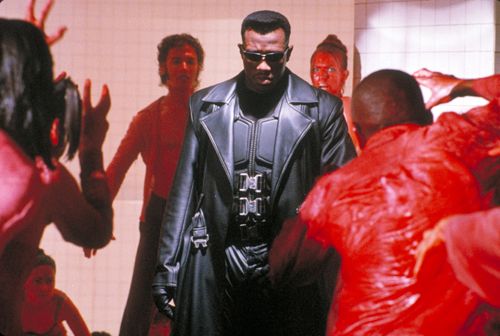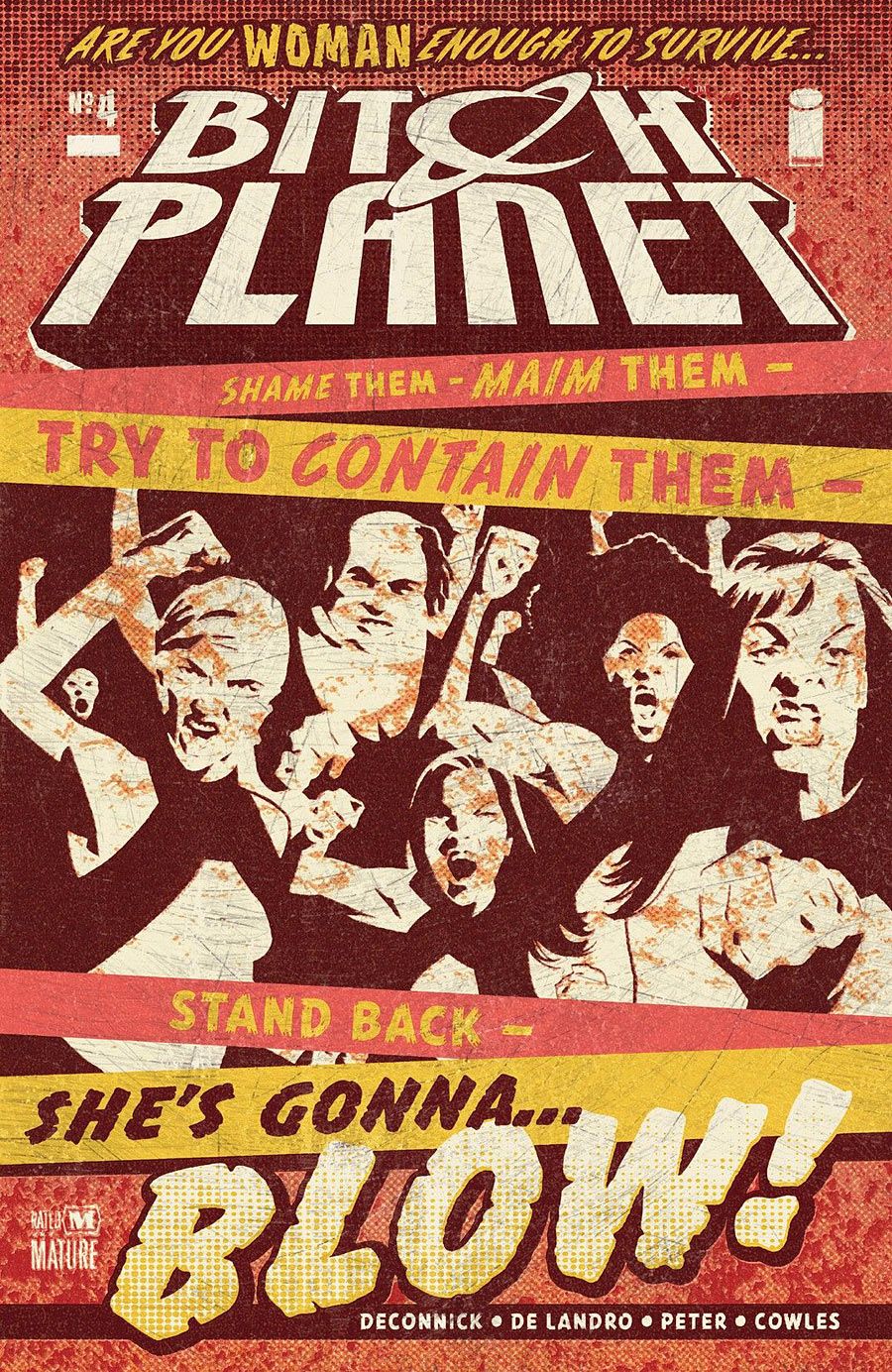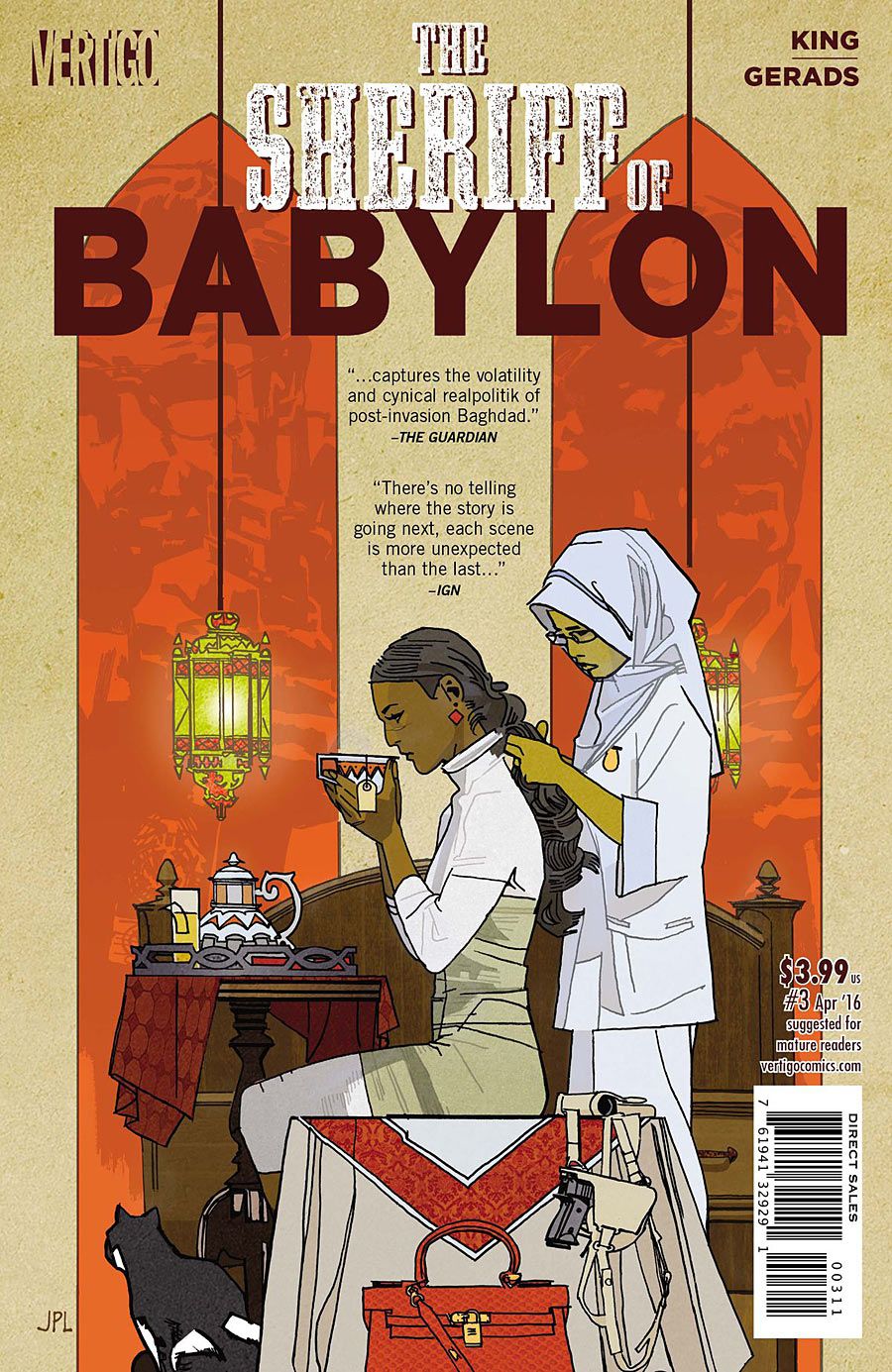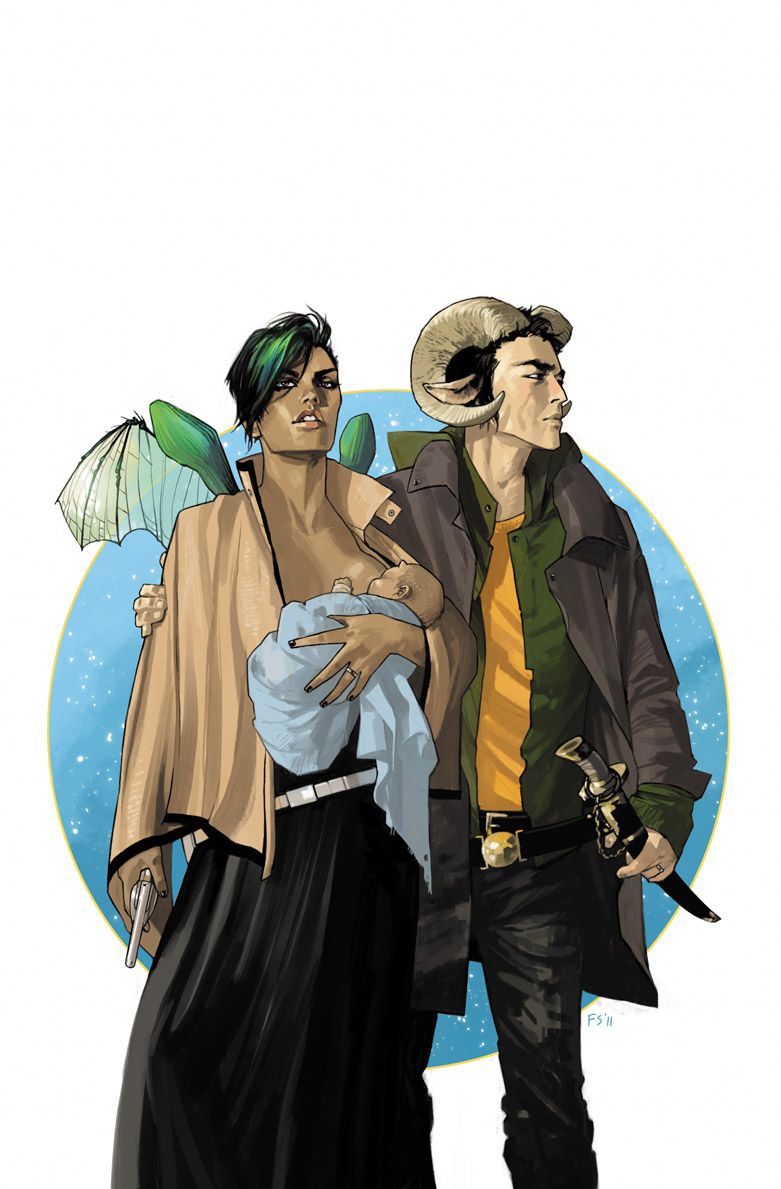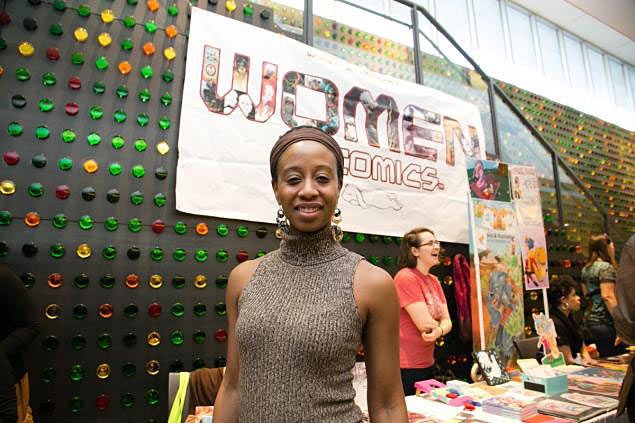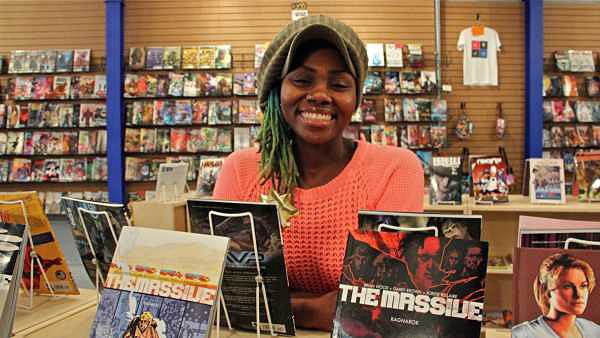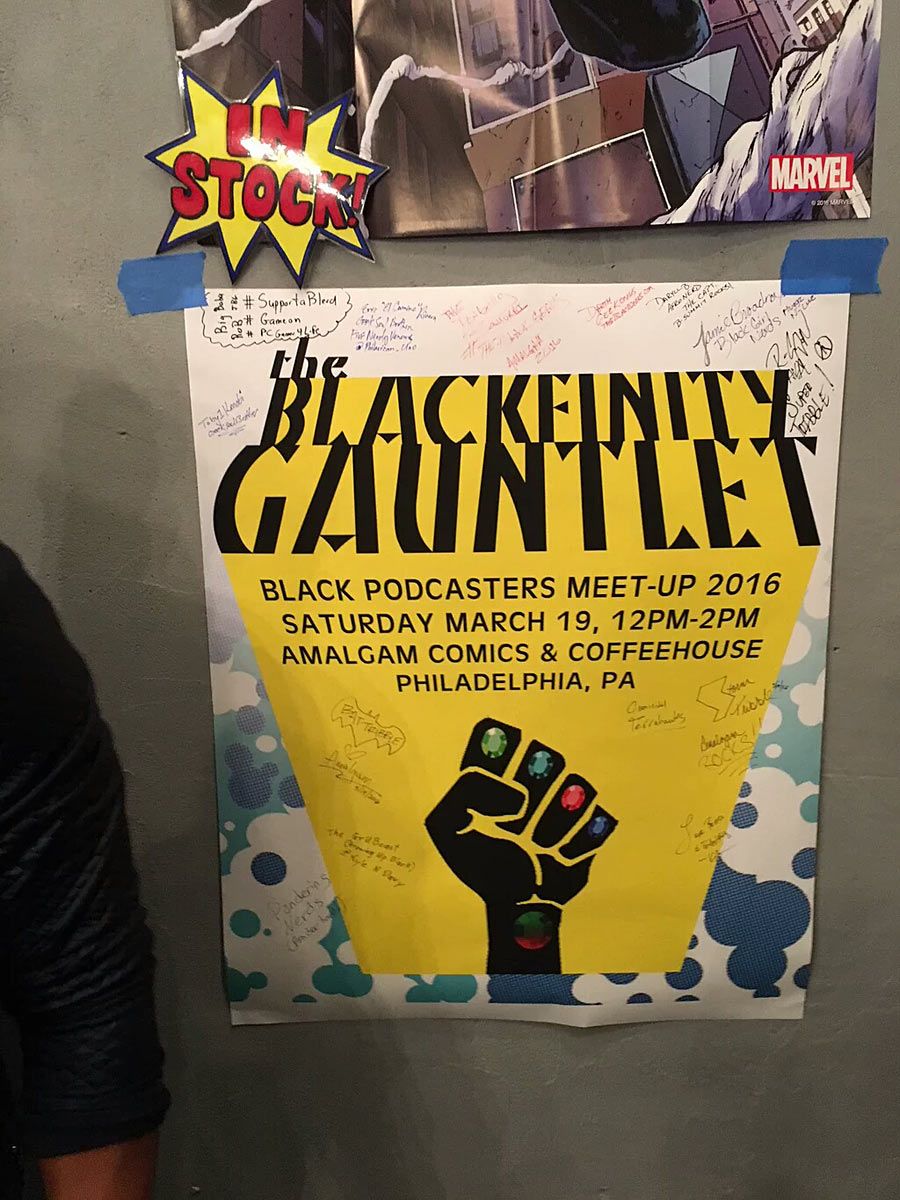During last week's Chicago Comic & Entertainment Expo, Marvel Comics announced their new "Blade" series will be illustrated by Afua Richardson, the artist of 2014's groundbreaking, socially relevant "Genius" miniseries from Top Cow Productions.
With the new Blade character being a young Black woman and the daughter of the original, male Blade, Marvel Comics upped the ante on the character diversity population within their superhero universe.
Afua Richardson is one of a large group of Black female creators and veterans in the comic book industry, and with the "Blade" brand having worldwide recognition due to the film franchise headlined by actor Wesley Snipes, Richardson is on her way to becoming popular with a larger audience.
RELATED: Seeley Makes Fighting a Family Affair in Marvel's "Blade"
Part of the reason Richardson's appointment as the artist for a Marvel Comics series is so impactful is because of the dearth of Black women in a creative capacity within the "Big Two" American superhero comic book publishers, Marvel Comics and DC Comics. The industry itself is full of Black women in various positions elsewhere, ranging from publisher to writer to writer/artist and so on.
However, I was reminded of the unfortunate ignorance of this fact on the part of consumers early last week, when a novelist friend of mine posted on Facebook asking for her friends to recommend female writers of color in comic books doing work about female characters of color, so she could become familiar with their work. I was taken aback by the three most prominent recommendations people on the chain made for this very specific request:
- Kelly Sue DeConnick, the critically-acclaimed writer/co-creator of Image Comics' "Bitch Planet."
- Tom King, the critically-acclaimed writer/co-creator of the DC Comics/Vertigo series "The Sheriff of Babylon."
- Fiona Staples, the critically-acclaimed illustrator/co-creator of the Image Comics' "Saga."
Let's discuss these recommendations, which were given with the caveat that each recommendation only met half of the criteria of the request. The back half, mind you, but still.
Kelly Sue DeConnick is probably one of the most-known, respected, and vocal advocates for diversity in comics. Gender diversity and ethnic diversity. Works like Image Comics' "Bitch Planet" and "Pretty Deadly," and Marvel Comics' "Captain Marvel," among many others, illustrate this point, as well as the writer's intentions and worldview.
She is not a writer of color.
In a refreshingly candid and informative podcast interview on The Fan Bros Show, DeConnick even said in jest, "I'm so White, I reflect light," in relation to discussing the television shows she watched as a kid.
Tom King is the writer of various works for Marvel and DC Comics including "The Vision," "Omega Men" and "The Sheriff of Babylon." These titles deal with the subject of culture as it relates to relationships with communities and the human capacity (or lack thereof) for understanding and connectedness. His work provokes thought and stands out among a good number of its peers.
He is not a writer of color. He is not even a female.
Fiona Staples work' on Image Comics' "Saga," arguably one of the most seminal series in the American comic book industry in the last decade, has also worked on the rebooted "Archie" series for Archie Comics. "Saga" is the second biggest seller for Image Comics, publisher of "The Walking Dead," and a regular star on The New York Times Bestseller List. Staples' art is beautiful, unique and evocative, and she may be one of the most impactful comic book illustrators of this era in the medium and industry.
She is a creator of color, but not known primarily for writing.
So in the request for, primarily, a female writer of color, the novelist was recommended a Caucasian woman, a Caucasian man, and one woman of color more known for being an illustrator, all of whom are working for the top three publishers in the American comic book industry.
This example, to which one can laugh, shake their head in disbelief, or become angered, reveals a multi-layered problem.
At the very least, the near-absence of female writers of color from the most prominent ambassador companies in comics enables people to further diminish the idea of female writers of color, by pointing to product featuring female characters of color.
These displays of ignorance, or lack of effort, or lack of knowledge, are juxtaposed against a time in the comic book industry in which female creators of color are shattering boundaries and achieving noteworthy media attention.
RELATED: Bernardin & Freeman's Accidentally Relevant "Genius" Gets Sequel
On March 12, the second annual Women in Comics Convention was held in the Bronx Library Center in New York City. Founded by writer/creator/publisher Regine Sawyer, the convention featured a large body of female creators of color, including writers, and received media coverage from outlets ranging from The New York Daily News to The Mary Sue.
Last weekend, Amalgam Comics & Coffeehouse in Philadelphia, PA held an event called "The Blackfinity Gauntlet." A clear reference to Marvel Comics "Infinity Gauntlet" series starring Thanos and the Marvel Universe, this event brought together multicultural podcasters from around the nation, including The Black Tribbles, The Fan Bros Show, Black Girl Nerds, Afronerd, and The Black Geeks, among many others.
Ariell Johnson, owner of Amalgam Comics & Coffeehouse, has received media coverage in almost every major comic book industry website, websites for NBC and CBS, and more. Johnson is a Black woman and proud geek, who recognized the need for a store like hers and set forth to create it.
The store carries comic books from a variety of publishers in the mainstream and independent circles, with an eye towards promoting the diverse creator pool of the comic book industry, including female writers of color.
Media coverage provides entry to various communities and demographics outside of the comic book fan base, but that needs to be supported by the actions of the prominent comic book publishers. Support in the forms of intention, hiring practices, marketing and publicity, and ethics.
The exclusion of Black women from the writing pool of the mainstream American comic book publishers is a phenomenon in direct opposition to the diversity narrative that a number of publishers are claiming as part of their ethos.
While Dark Horse has the most recent example of television star and activist Erika Alexander in their writing pool on her co-creator-owned series "Concrete Park," they are alone in this position. Both DC Comics and Dynamite Entertainment have hired Black female writers in the past, but it's been some time for both publishers.
Will we see a change in the immediate future?
Will DC Comics' "Rebirth" publishing plan reveal a pleasant surprise in the hiring of any Black female writers, as a return to past practice?
Is Marvel Comics already working with Black female writers, on projects which have been in the works for months, and waiting for the right time to make announcements?
Remember, they were working with writers like David Walker and Ta-Nehisi Coates while being harshly criticized for having an absence of Black male writers, so history could be repeating itself.
Should we give it six months, to see what our favorite publishers roll out?
Let's do that.
Reconvene in September of this year, and see how many Black female writers get announced on projects for the prominent comic book publishers.
I'm looking forward to it.
Joseph Phillip Illidge is a public speaker on the subjects of race, comics and the corporate politics of diversity. In addition to his coverage by The New York Times, CNN Money, the BBC and Publishers Weekly, Joseph has been a speaker at John Jay College of Criminal Justice, Digital Book World's forum, Digitize Your Career: Marketing and Editing 2.0, Skidmore College, The School of Visual Arts, Purdue University, on the panel "Diversity in Comics: Race, Ethnicity, Gender and Sexual Orientation in American Comic Books" and at the Soho Gallery for Digital Art in New York City.
Joseph is the Head Writer for Verge Entertainment. Verge has developed an extensive library of intellectual properties for live-action and animated television and film, video games, graphic novels and web-based entertainment.
His graphic novel project, "The Ren," about the romance between a young musician from the South and a Harlem-born dancer in 1925, set against the backdrop of a crime war, will be published by First Second Books, a division of Macmillan.
Joseph's newest comic book project is the upcoming Scout Comics miniseries "Solarman," a revamp of a teenage superhero originally written by Stan Lee.

